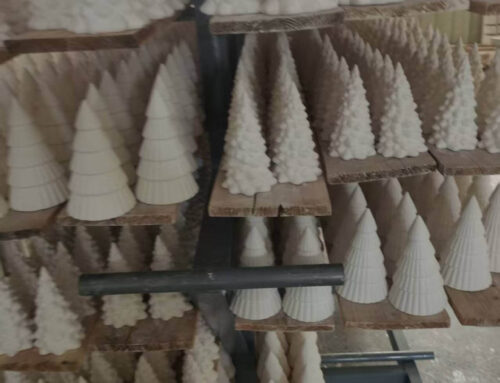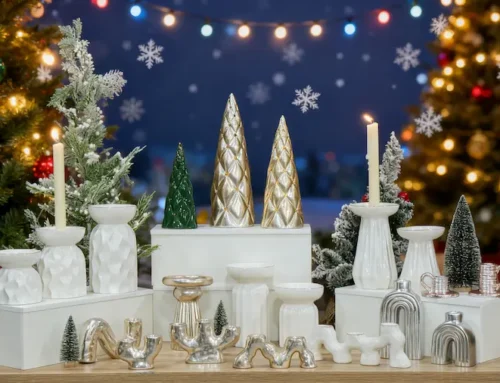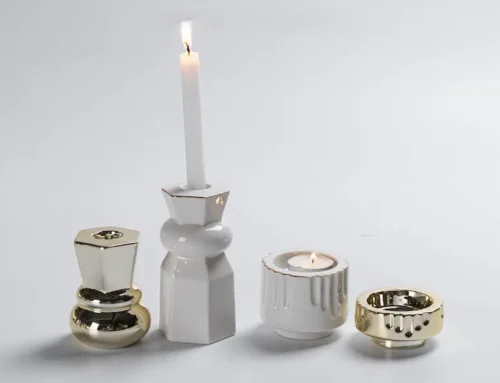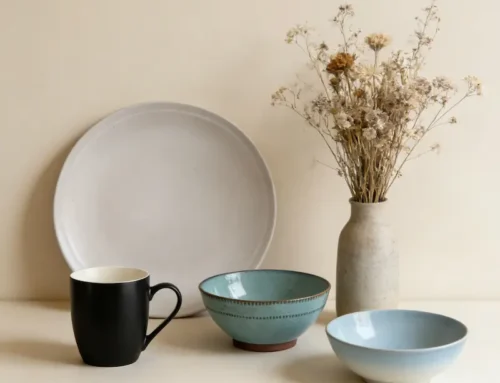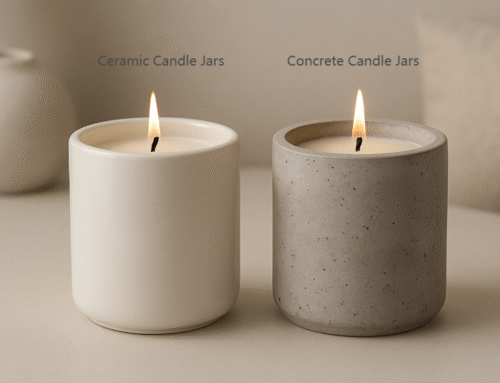In today’s world, sustainability is no longer just a trend—it’s a necessity. As consumers become more environmentally conscious, they are actively seeking products that align with their values. When it comes to tableware, home décor, and gift items, porcelain and stoneware stand out as superior eco-friendly choices. But why are these materials considered sustainable, and how do they compare to plastic and other synthetic alternatives?
At Homey Ceramic, we are committed to merging elegance with environmental responsibility. Here’s an in-depth look at why porcelain and stoneware are among the best choices for sustainable living.
-
Made from Natural, Abundant Materials
Unlike plastic, which is derived from petroleum—a non-renewable resource—porcelain and stoneware are crafted from natural minerals such as kaolin clay, feldspar, and quartz. These raw materials are:
- Abundant– Clay deposits are widely available, reducing the need for destructive mining practices.
- Non-toxic– Free from harmful chemicals like BPA, phthalates, and PVC, which are often found in plastic products.
- Earth-friendly– Their extraction and processing have a lower carbon footprint compared to synthetic material production.
Since ceramics are made from natural elements, they decompose back into the earth over time without releasing microplastics or toxic residues.

Choose porcelain for a sustainable future.
-
Plastic-Free and Non-Toxic
One of the biggest concerns with plastic products is their potential to leach harmful chemicals into food, water, and the environment. Porcelain and stoneware, on the other hand, are:
- 100% plastic-free– No petroleum-based additives are used in their production.
- Food-safe– Unlike some metals or plastics, ceramics do not react with acidic or hot foods, ensuring no chemical transfer.
- Free from synthetic coatings– Many plastic or melamine products contain coatings that degrade over time, whereas ceramics remain stable and safe.
This makes them ideal for everyday use, especially for families looking to reduce their exposure to toxins.
-
Exceptional Durability Reduces Waste
The most sustainable products are those that last. Porcelain and stoneware are known for their:
- Scratch resistance– They maintain their smooth finish even after years of use.
- Heat resistance– Unlike plastic, ceramics can withstand high temperatures without warping or releasing harmful fumes.
- Chip resistance– Stoneware, in particular, is thicker and more durable than fine porcelain, making it perfect for daily use.
Because high-quality ceramics can last for decades—or even generations—they drastically reduce the need for disposable alternatives. This longevity helps minimize waste and lowers the demand for mass-produced, short-lived products.
-
Recyclable and Reusable in Creative Ways
While ceramics are not biodegradable, they are far from being single-use waste. Here’s how they contribute to a circular economy:
- Recyclable in construction– Crushed ceramics can be repurposed as aggregates for roads, tiles, or landscaping.
- Upcycling potential– Chipped or broken ceramics can be transformed into mosaic art, garden markers, or decorative pieces.
- Multi-functional use– A ceramic bowl can become a planter, a mug can turn into a pen holder, and a plate can serve as a decorative wall piece.
This versatility ensures that even if a ceramic item is no longer used for its original purpose, it doesn’t immediately end up in a landfill.
-
A Stylish and Sustainable Alternative to Plastic
Plastic tableware may be convenient, but it often looks and feels cheap—contributing to a throwaway culture. Porcelain and stoneware, in contrast, offer:
- Timeless elegance– Their classic aesthetic never goes out of style.
- Tactile warmth– Unlike cold, synthetic materials, ceramics have a natural, comforting feel.
- Premium quality– Well-crafted ceramics elevate dining and décor experiences while being environmentally responsible.
From festive holiday ornaments to elegant dinnerware sets, ceramic products provide both functionality and sustainability without compromising on beauty.
6.Energy-Efficient Production with High-Temperature Firing
While porcelain and stoneware require high-temperature kiln firing (typically between 1200°C-1400°C), modern ceramic manufacturers like Homey Ceramic implement several eco-conscious practices to optimize energy use:
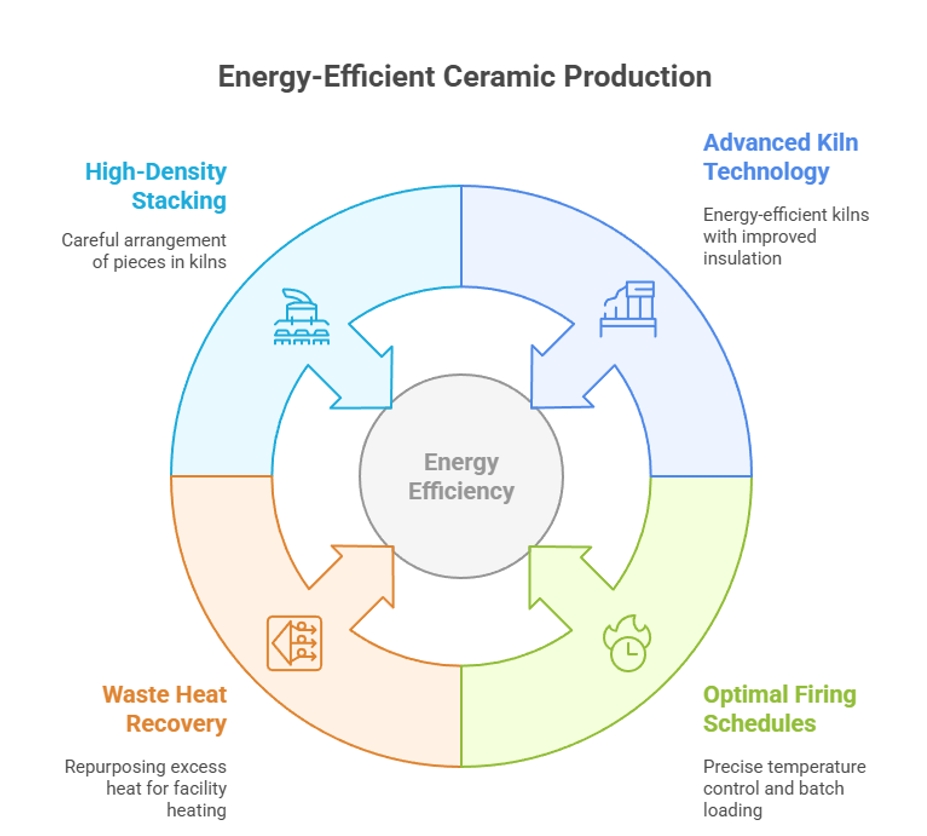
Energy-Efficient Ceramic Production
- Advanced kiln technology– We use energy-efficient kilns with improved insulation to minimize heat loss
- Optimal firing schedules– Precise temperature control and batch loading maximize each firing cycle’s efficiency
- Waste heat recovery– Excess heat from cooling kilns is repurposed for facility heating when possible
- High-density stacking– Careful arrangement of pieces in kilns allows firing more products per cycle
Though high-temperature firing is essential for creating durable, vitrified ceramics, these measures help reduce the overall carbon footprint compared to traditional firing methods. The longevity of ceramic products – often lasting decades – offsets the initial energy investment when compared to disposable alternatives.
Conclusion: Small Changes, Big Impact
Switching to porcelain and stoneware is more than just a design choice—it’s a step toward a greener, more sustainable lifestyle. By choosing ceramics, you support:
✅ Natural, non-toxic materials
✅ Long-lasting durability
✅ Plastic-free living
✅ Reusable and recyclable solutions
✅ Elegant, timeless designs
At Homey Ceramic, we take pride in offering B2B clients and designers a wide range of sustainable ceramic products, from custom tableware to seasonal décor. Our mission is to help businesses create beautiful, eco-conscious collections that align with modern sustainability goals.
Ready to Make the Sustainable Switch?
Explore our eco-friendly ceramic collections or contact us for custom solutions. Together, we can build a more sustainable future—one plate, mug, or vase at a time.
Choose ceramics. Choose sustainability.

